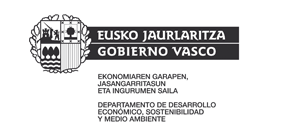This post provides insights on how we got the research line around «International Niche Market Leaders» (INMLs) off the ground. Essentially, it is a story of intrapreneurship, finding launching customers and of targeted (but no-budget) PR activities.
In order to give a new impulse to our “internationalization of business” (IB) activities, we decided to brush off an appealing, yet under-exploited, framework for analysis and apply it to the Basque landscape of enterprises: enter INMLs.
The way the work started out resembled very much how intrapreneurs go about. Start experimenting on a small scale, try to proof the concept and its “researchability” through interactions with likely instances, and without making too much noise about it (neither inside or outside the organization until the idea and research tools had “ripened”). Intrapreneurship initiatives require that the “hosting” organization tolerates new ideas and actions and we were lucky to find a fertile environment in Orkestra.
The intrapreneurship ways that we adopted to drive this topic further were also indicative for the way we communicated and marketed the topic externally. Getting it on outsiders’ agenda was largely done on the basis of guerrilla marketing tactics.
When we started out, we did not really have a concrete “product”, but we still managed to draw market interest to what we were shaping. Capturing interest was also done in typical entrepreneurial style: we had no (dedicated) budgets to endorse our marketing mix; so we had to be daring, creative and original. In fact, the lack of formal resources brought out the best in us and it went well with our “underground” mentality. At the same time it served to illustrate the statement that “communication and marketing” are disciplines that attract very creative people, but you only know how creative someone is, if he/she has to work on a low or no-budget basis.
So while we had no formal communication activities, we did manage to create sufficient buzz. What helped a lot was people’s fascination with the term “jaiden xempions” (and its pronunciation :-). In fact, we have witnessed on more than one occasion that when an Orkestra member (not necessarily someone working on the topic) used the term in a conversation with people outside the organization, at first the term appeared to not make sense, but then -as if by magic- those people started using it or came back to us asking for more information.
Over time, we managed to get a series of private and public actors to become interested in our work, and to propose actionable research plans around it. The way we built up the project funnel was also very much new venture-like: at first we had more “users” and “listeners” then paying customers. Also, we got the first projects by going beyond the direct customers: we got companies that are of relevance for the Basque economy (or its foreign trade position) interested in what we were doing and ready to work with us on the topic, which leveraged the interest of public actors in our work. These were not huge budget-assignments, but rather projects that acted as seed capital: providing enough resources to give body and visibility to the research line, as well as internal and external credibility, and preliminary evidence that we could be on our way to open up/create a market.
Although we ventured into this field at a time that it was not at all a mainstream topic, when you move into an apparently new field you discover you are not the only one wandering out there. The former was also the case with our work around INMLs as we noticed others having their say as well (other researchers, practitioners, journalists, … ). In a way, this helped to create momentum since we were dealing with an unestablished + undefined product and/or market. And in such situations; to have “competition” is useful as it makes the product look more relevant and it raises the chance that people actually start noticing it.
At present, I think we can say that our work around International Niche Market Leaders is having an impact on the way that –particularly- policy makers look at and talk about (segments of) enterprises in the Basque Country. Similarly, it has allowed us to find additional ways to analyze how and why this species (or an economy that counts with a degree of this kind of firms) performs different or better in comparison to “average” companies (or economies). All this has boosted the (practical) relevance of our work further. As a final note: while the research line is contributing to the use of terms like “campeones de nichos”, “lideres en nichos internacionales”, etc. in public circles, it is my contention that the discrete manner in which we operated vis-à-vis the companies in question, has made us acceptable to many of the subject matters. And the relationships with these companies form a very precious good that we should cultivate and nourish. These companies are the true heroes of this story.

Bart Kamp
Bart Kamp is Principal Investigator in the focus area of Business Internationalisation and Servitization at Orkestra-Institute of Basque Competitiveness. His research centres on competitive strategies that enable firms to be leaders in their niches on the international market and on servitization processes between manufacturing firms.
More articles by this author
-
2020-11-06
Cultural values and societal responses to the Corona crisis: explaining differences based on the Hofstede model -
2020-06-22
Challenges for supply chain management in times of (post-)COVID19 -
2020-04-27
Will the corona-crisis lead to a turnaround in supply chain management? -
2018-11-23
¿Producto o servicio? ¿Cual será el centro del sistema de negocio industrial? -
2017-11-21
Campeones cotizados -
2017-05-10
Euskadi Inside -
2017-02-06
How to grow and exploit a niche market? -
2016-06-01
How to recognize an International Niche Market Leader? -
2016-03-22
Is the International Niche Market Leader a rare species? -
2016-02-17
What kind of companies do we refer to when we speak of International Niche Market Leaders? (Part 2) -
2016-02-11
What kind of companies do we refer to when we speak of International Niche Market Leaders? (Part 1) -
2014-07-01
Live and direct from Lazkao to the world -
2014-01-27
¿Necesita Mondragón un Marchionne o un Semler? -
2013-10-30
El valor de Fagor Electrodomésticos visto desde una perspectiva del clúster gastronómico vasco -
2013-10-16
Christine Lagarde y Olli Rehn se van de compras en Eroski -
2013-06-10
La internacionalización de la empresa vasca: ¿Cómo sacar una cola larga de una puerta giratoria? -
2013-03-12
¿Cómo revitalizar las actividades manufactureras? -
2013-03-07
Spain’s last economic stronghold struggles to maintain resilience -
2013-02-04
The competitive advantages of emerging economies: from cheap labour over sophistication of demand to innovation incubation -
2012-06-21
Del “backshoring” a la “internacionalización inversa”: ¿Debe el País Vasco tomarse más en serio la atracción de inversiones chinas?














